5 X 5M ISO 6 Hardwall Cleanroom
Reference Price:US$5500.00-7500.00




Cleanroom
5 X 5M ISO 6 Hardwall Cleanroom
Choose your installation & validation options below
Quantity:
Choose your Cleanroom frame structure material
Quantity:
Choose your Cleanroom Wall enclosure materials
Quantity:
Choose your Temperature requirements
Quantity:
Choose your humidity requirements
Quantity:
Choose your Explosion-proof requirements
Quantity:
Summary
5 X 5M ISO 6 Hardwall Cleanroom
Validation
Installation & Validation
Find Similar Products
-

10 x 20M ISO 6 Hardwall Cleanroom
US$5000-19000 USD/Set
Min. Order:1 Set -

10 x 15M ISO 6 Hardwall Cleanroom
US$5000-19000 USD/Set
Min. Order:1 Set -

10 x 10M ISO 6 Hardwall Cleanroom
US$5000-19000 USD/Set
Min. Order:1 Set -

8 x 15M ISO 6 Hardwall Cleanroom
US$5000-19000 USD/Set
Min. Order:1 Set -

8 x 10M ISO 6 Hardwall Cleanroom
US$5000-19000 USD/Set
Min. Order:1 Set -

5 x 10M ISO 6 Hardwall Cleanroom
US$5000-19000 USD/Set
Min. Order:1 Set
Cleanrooms Detail
A 5 x 5 meter ISO 6 Hardwall Cleanroom is a spacious, controlled environment designed to meet ISO 14644-1 standards for Class 6 cleanliness. With rigid walls and HEPA filtration, it ensures a particle concentration of no more than 35,200 particles per cubic meter (≥0.5 µm). This cleanroom is ideal for applications requiring moderate contamination control, such as pharmaceutical production, electronics assembly, and biotechnology processes. The robust design offers durability, ease of maintenance, and reliable performance for sensitive operations.

Key Features of an ISO 6 Cleanroom
Particle Count: Limits the concentration of particles larger than 0.5 microns to no more than 35,200 particles per cubic meter of air.
Air Changes per Hour (ACH): Requires a minimum of 150 air changes per hour to maintain cleanliness and remove airborne contaminants effectively.
Airflow: Typically uses unidirectional (laminar) airflow to reduce particle contamination and ensure a consistent clean environment.
Materials: Constructed with durable, non-porous materials like steel or composite panels to minimize particle shedding and ensure ease of cleaning.
Hardwall Cleanroom Specification
| No | Item | Data | Optional |
| 1 | Product | Clean room | The price needs to be re-calculated |
| 2 | Size | L5.3m*W3.5m*H2m | Yes |
| 3 | Cleanliness | 1000class | 10/100/10000 class |
| 4 | Wall | Antistatic pvc grid curtain | Acrylic or toughened glass |
| 5 | Door | Pvc soft curtain | Acrylic or toughened glass |
| 6 | Frame | Aluminium 5050 | Stainless steel |
| 7 | FFU | 1175*575*320MM / Aluminium zinc /6 sets | Stainless steel |
| 8 | Purified lamp | 15W /8Pcs | Quantity |
| 9 | Voltage | AC 220V/50hz | Yes |
Cleanrooms Airflow
To maintain ISO 5 classification, the following criteria must be met:

Particle Concentration Limits (per cubic meter of air)
0.5 microns: ≤ 3,520 particles
5 microns: ≤ 0.1 particles (the particle count drops significantly for larger particles)
Class 100 (in U.S. classification): ISO 5 cleanrooms are often referred to as Class 100 cleanrooms in the U.S. classification system.
Airflow Design
Laminar or Unidirectional Airflow: To maintain the cleanliness, air must flow in a uniform direction, typically from ceiling to floor, with minimal turbulence to prevent particles from settling.
HEPA or ULPA Filters: Air is filtered through High-Efficiency Particulate Air (HEPA) or Ultra-Low Penetration Air (ULPA)filters that capture particles down to 0.3 microns or smaller. ULPA filters provide even higher efficiency, capturing particles down to 0.12 microns.
Cleanrooms Installation
Environment Preparation
Frame Assembly
Filter and Fan Installation
Commissioning
Cleanrooms Testing

-
Air Supply and Exhaust Volume Testing
-
Airflow Control Inspection
-
Inspection Instruments and Equipment
-
Testing Standards and Criteria
-
Testing Steps and Processes
FAQ
1. How much does an ISO 6 Hardwall Cleanroom cost?
The cost of an ISO 6 Hardwall Cleanroom can vary based on several factors, including its size, design complexity, and the specific features required. On average, the construction of a cleanroom of this type can range from $50,000 to $150,000. This includes installation of the hardwalls, HEPA filters, HVAC systems, and air monitoring equipment.
2. What is an ISO 6 Hardwall Cleanroom?
An ISO 6 Hardwall Cleanroom is a controlled environment designed to meet the ISO 14644-1 standard for Class 6 cleanliness. It uses rigid walls (hardwalls) and HEPA filtration systems to maintain low levels of airborne particles. This type of cleanroom is used in industries where moderate contamination control is required, such as pharmaceutical production, electronics, and biotechnology.
3. What are the advantages of using hardwall construction over softwall?
Hardwall construction offers several advantages over softwall cleanrooms, including:
Durability: Hardwalls provide a more stable and long-lasting structure.
Better contamination control: The rigid walls reduce the risk of contamination from external sources.
Easier maintenance: Hardwall systems are easier to clean and maintain than softwall alternatives.
These factors make hardwall cleanrooms more suitable for industries with stringent cleanliness requirements.
4. How do you control temperature fluctuations in an ISO 6 Cleanroom?
Temperature fluctuations in an ISO 6 Cleanroom are controlled by a precision HVAC system that maintains a constant temperature range, typically between 18-22°C (64-72°F). The system uses sensors to monitor temperature and automatically adjusts air conditioning or heating units as needed, ensuring the environment stays stable for sensitive processes.
5. How does cleanroom technology evolve in the ISO 6 classification?
Cleanroom technology in the ISO 6 classification has evolved with advancements in filtration systems, airflow design, and automated monitoring. New technologies such as more efficient HEPA filters, advanced air handling units, and real-time particle counters have made it easier to maintain stringent cleanliness standards while improving energy efficiency and reducing operational costs.
6. What is the role of HEPA filters in an ISO 6 Hardwall Cleanroom?
HEPA filters play a crucial role in maintaining the cleanliness of an ISO 6 Hardwall Cleanroom by removing 99.97% of particles as small as 0.3 microns from the air. These filters ensure that the particle count stays within the limits required for Class 6 cleanliness, which is essential for sensitive operations like pharmaceutical manufacturing and electronics assembly.
7. How is contamination controlled during cleanroom construction?
Contamination during cleanroom construction is controlled by:
Using clean materials: Low-particulate materials are selected to minimize contamination.
Sealing the construction area: Keeping the building area isolated from external contaminants.
Frequent cleaning: Ensuring the site is regularly cleaned to remove dust and debris.
These practices ensure that contamination is minimized from the very beginning.
8. What are the common maintenance challenges in an ISO 6 Cleanroom?
Common maintenance challenges in an ISO 6 Cleanroom include:
Maintaining air filtration systems: Ensuring HEPA filters are replaced regularly to maintain air quality.
Preventing surface contamination: Keeping surfaces clean and free of particles.
Monitoring environmental controls: Regularly checking airflow, temperature, and humidity to ensure stable conditions.
Addressing these challenges helps maintain the cleanroom’s operational effectiveness.
9. How is air filtration efficiency measured in an ISO 6 Cleanroom?
Air filtration efficiency in an ISO 6 Cleanroom is measured by testing the HEPA filters for their ability to remove particles from the air. This is done using particle counters to check if the particle count is within the acceptable range. The filter's efficiency is typically assessed by measuring the particle penetration rate and ensuring it is below the specified limit of 0.03%.
10. How do you install and maintain HEPA filters in an ISO 6 Cleanroom?
HEPA filters are installed in the cleanroom's HVAC system, usually in the ceiling or walls, and should be sealed properly to prevent any air bypass. They must be replaced regularly (typically every 12 to 24 months) depending on usage. Periodic performance testing should also be conducted to ensure that the filters continue to operate efficiently.
11. How do you handle air contaminants in an ISO 6 Cleanroom?
Air contaminants in an ISO 6 Cleanroom are primarily controlled through HEPA filtration and proper airflow management. The cleanroom’s HVAC system is designed to filter out particles, and the airflow is set up to maintain unidirectional flow, ensuring that contaminants are continuously swept away from sensitive areas. In addition, strict cleaning protocols are followed to prevent contamination from entering the environment.
12. How do you test an ISO 6 Cleanroom for particle contamination?
To test an ISO 6 Cleanroom for particle contamination, laser particle counters are used to measure the number and size of airborne particles. The particle count is then compared to the acceptable limits for an ISO 6 environment, ensuring that the cleanroom meets the required cleanliness standards for its intended use.
13. What are the key features of an ISO 6 Hardwall Cleanroom?
Key features of an ISO 6 Hardwall Cleanroom include:
Rigid wall construction: Ensures a stable and controlled environment.
HEPA filtration: Removes airborne particles to maintain cleanliness.
Positive pressure: Keeps contaminants out by maintaining air pressure inside the cleanroom.
These features make it ideal for industries requiring controlled and contamination-free environments.
14. How do you manage waste in an ISO 6 Hardwall Cleanroom?
Waste in an ISO 6 Hardwall Cleanroom is managed by using sealed containers to prevent the escape of particles. Regular waste removal is scheduled to avoid accumulation of contamination. Additionally, waste is disposed of following strict regulatory procedures to ensure no contamination occurs during the disposal process.
15. What is the ideal air pressure differential for an ISO 6 Cleanroom?
The ideal air pressure differential for an ISO 6 Cleanroom is typically set at +0.02 to +0.05 inches of water (5-12 Pa) relative to surrounding areas. This positive pressure ensures that contaminants do not enter the cleanroom when doors are opened and helps maintain a stable environment for sensitive processes.
16. How do you optimize space usage in an ISO 6 Cleanroom?
Space in an ISO 6 Cleanroom can be optimized by:
Using modular furniture: Allows for flexible arrangement and easy reconfiguration.
Vertical storage: Maximizes the use of wall space for equipment and supplies.
Compact, multi-functional equipment: Saves floor space while maintaining functionality.
These strategies help ensure the cleanroom is efficient without compromising cleanliness or operational needs.
17. How do you ensure the cleanliness of surfaces in an ISO 6 Hardwall Cleanroom?
Surface cleanliness in an ISO 6 Hardwall Cleanroom is maintained by following strict cleaning protocols. Surfaces are regularly wiped down using approved disinfectants and cleaned with non-shedding materials to prevent contamination. Routine surface contamination checks and cleaning help ensure that the cleanroom remains within the required cleanliness standards.
18. What are the regulations for ISO 6 Hardwall Cleanrooms?
ISO 6 Hardwall Cleanrooms must adhere to ISO 14644-1 regulations, which outline the requirements for air cleanliness levels and particle concentration. Additionally, the cleanroom must comply with relevant industry standards and local regulations, such as those for pharmaceutical manufacturing or electronics assembly, to ensure safety and product integrity.
Factory Production Workshop Video
Factory Photo
Product Packaging And International Logistics
Product International Certification

Find Other Common Equipment Recommendations
-

Modular CleanRoom
US$9000-10000 USD/Unit
Min. Order:1 Set -

Air Shower
US$1000.00-5000.00 USD/Unit
Min. Order:1 Set -

Downflow Booth
US$3000-6000 USD/Unit
Min. Order:1 Set -

Clean bench
US$600-2000 USD/Unit
Min. Order:1 Set -

Air Filter
US$3-50 USD/Unit
Min. Order:1 Set -

Cleanroom Wall Panels
US$10-20 USD/sq.
Min. Order:1 Set -
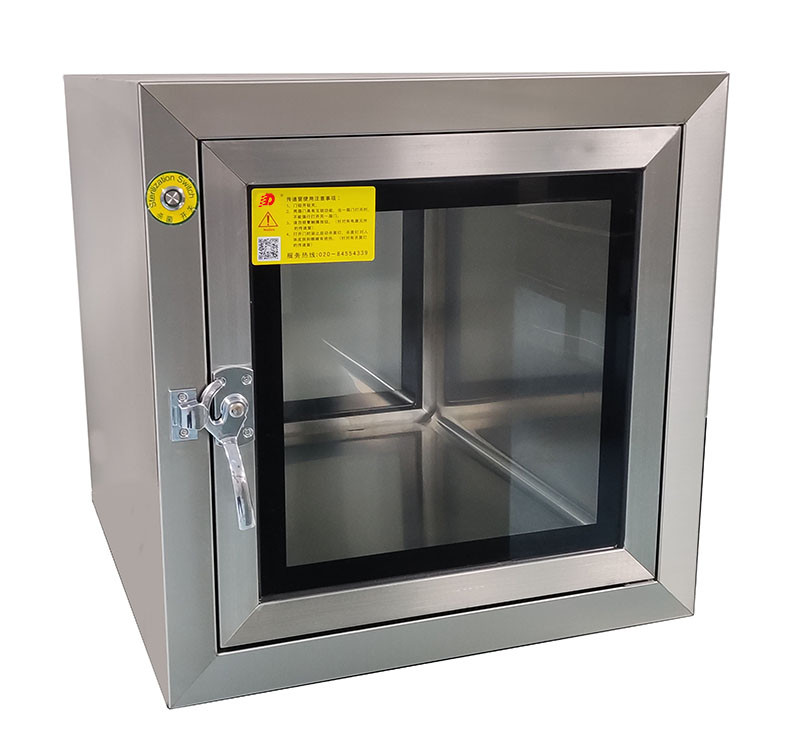
Pass Box
US$200-500 USD/Unit
Min. Order:1 Set -
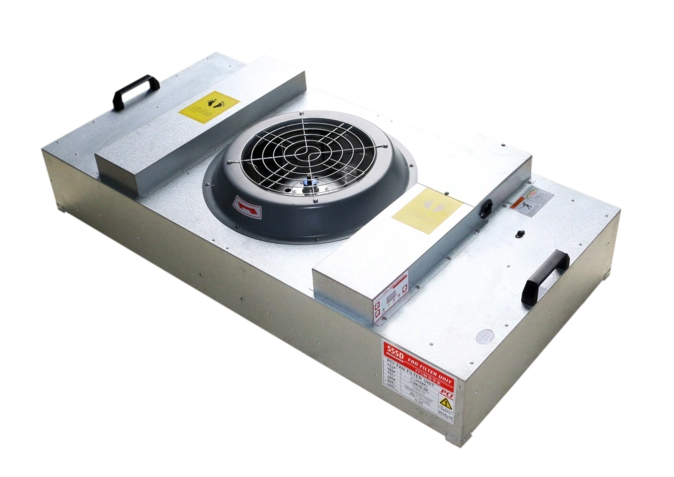
FFU
US$135-350 USD/Unit
Min. Order:1 Set -
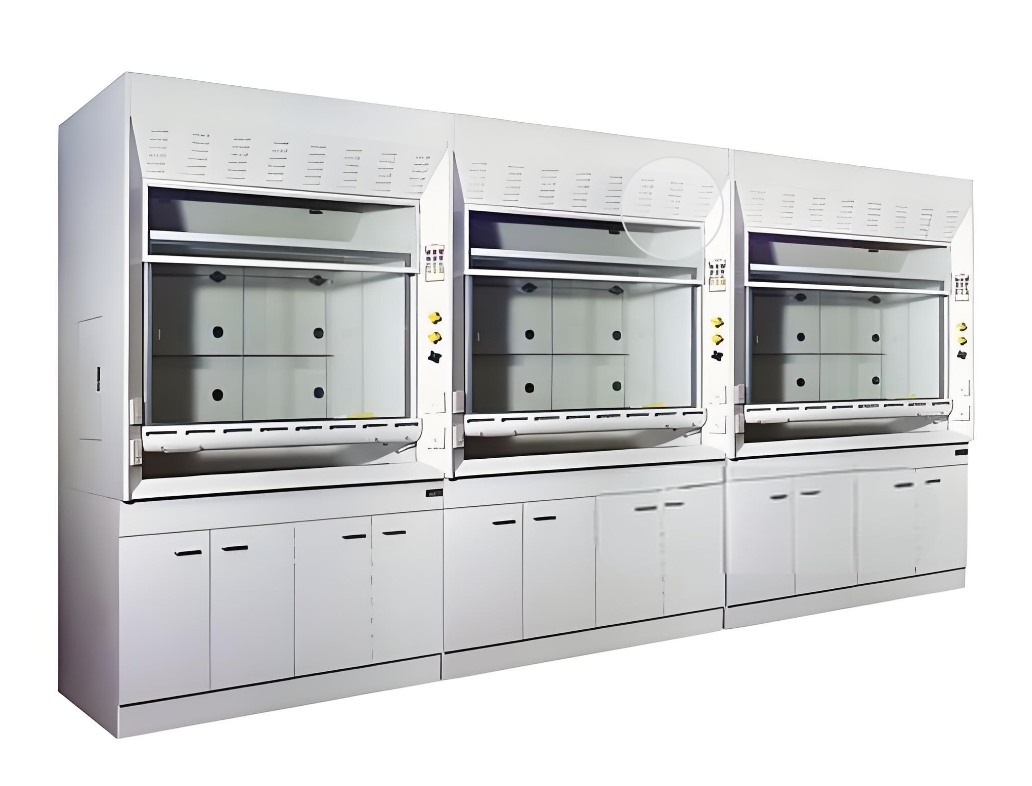
Fume Hood
US$700-1500 USD/Unit
Min. Order:1 Set -
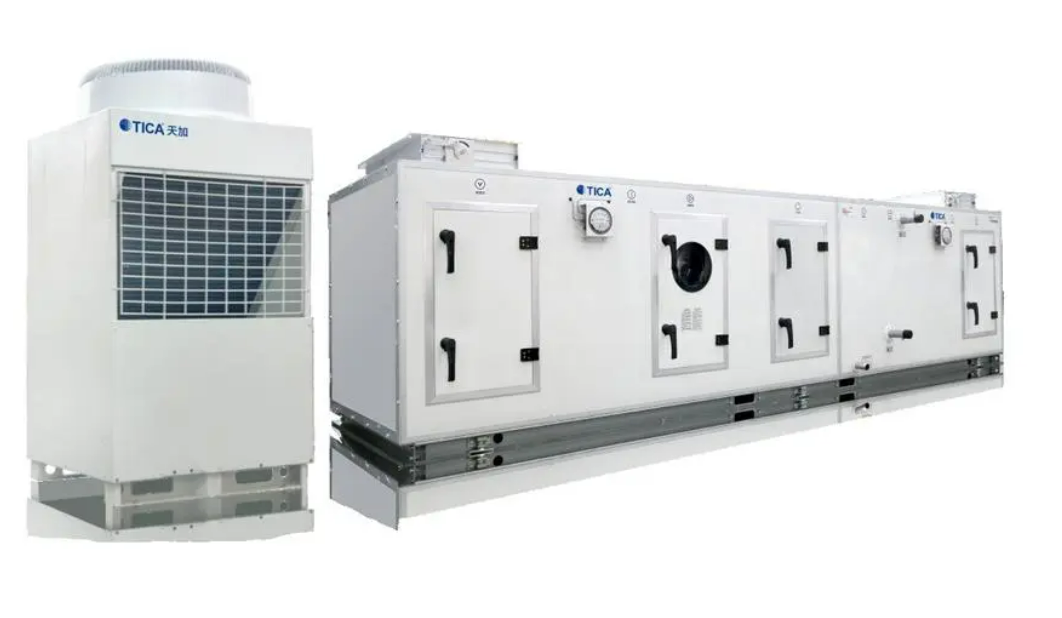
Cleanroom HVAC
US$5000-20000 USD/Unit
Min. Order:1 Set -
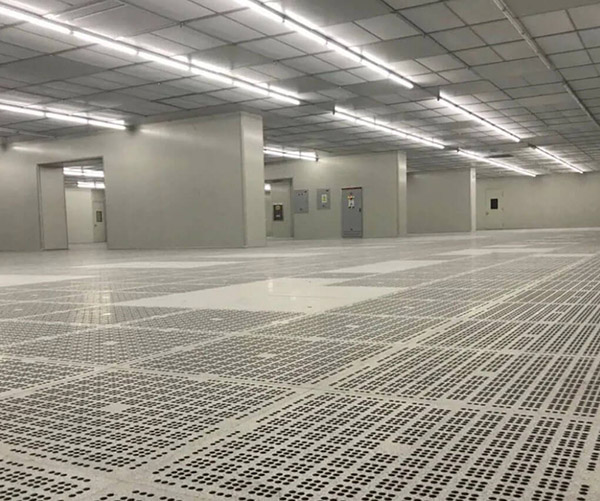
Clean room floor
US$5-20 USD/Sq.
Min. Order:1 Set -
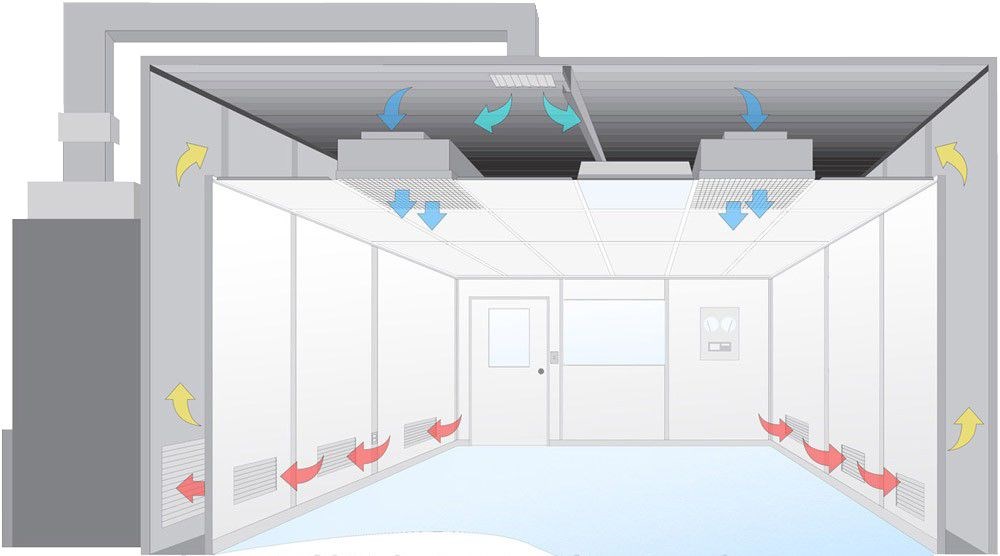
Clean room ceiling
US$
Min. Order:1 Set
 +86 18186671616
+86 18186671616 Jason@cleanroomequips.com
Jason@cleanroomequips.com
 MENU
MENU













